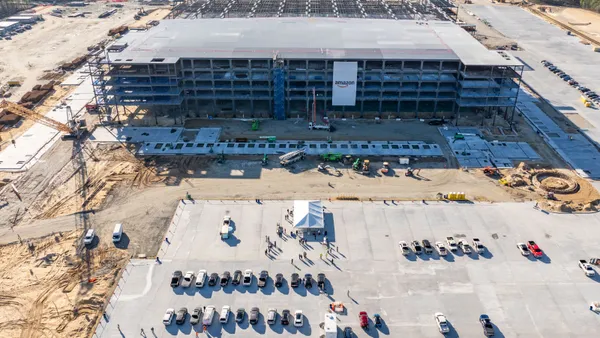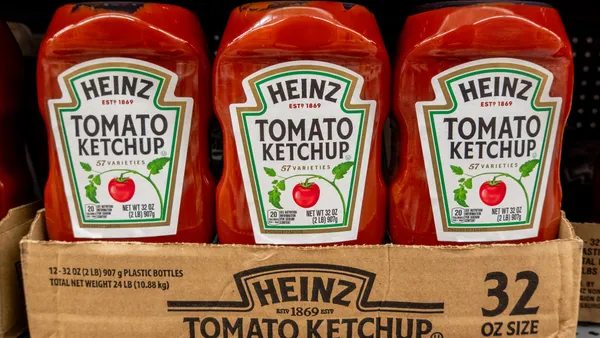Dive Brief:
- At the turn of the century, RFIDs seemed poised to be ubiquitous. But then, whether through technology cost or labor prices, momentum petered out, Alabama News Center reported Tuesday.
- Since that time, however, and possibly with only industry experts watching, they've quietly ascended the retail supply chain, growing from 3 billion to 8 billion apparel RFID tags sold since 2014.
- In fact, according to Auburn University's 2016 State of RFID Adoption Among U.S. Apparel Retailers, 96% of retailers had plans to deploy the tags on their apparel products.
Dive Insight:
Sometimes technology takes a while to catch on, but with 96% of surveyed retailers finally deploying the technology, the question that arises is, why now?
As with many business decisions, the cost-benefit analysis for implementing the technology must have changed, and in the case of RFID, various case studies suggest lack of affordability, industry shifts and time to implementation may have all played a part in the adoption delay.
First, the early hype of the technology led to a potentially overpriced tag. Early adopters like Wal-Mart may have bought into the benefits without full evidence, but even the retail behemoth had trouble reaching full implementation due to the high cost of compliance for suppliers.
Second, while the tags have been around for over a decade alongside other must-haves like Big Data, only recently with the rise of the cloud and fully-integrated platforms has the promise of data analytics and mass-implementation of the Internet of Things become evident across various industries. The value of storing and monitoring product data on RFID tags rises when the infrastructure is in place to understand it.
Lastly, as department stores and big box retailers struggle to retain revenues in the age of online shopping, companies are looking for new ways to drive down operational costs — and supply chain management has been put on the spotlight. RFID tags promise more efficient inventory management and replenishment, both which have increased in importance as retailers lean their stocks and engage omnichannel strategies.
The steady success of RFID technology demonstrates that technology implementations are often multi-faceted and long, but with due diligence can drive great value to early and late adopters alike.













